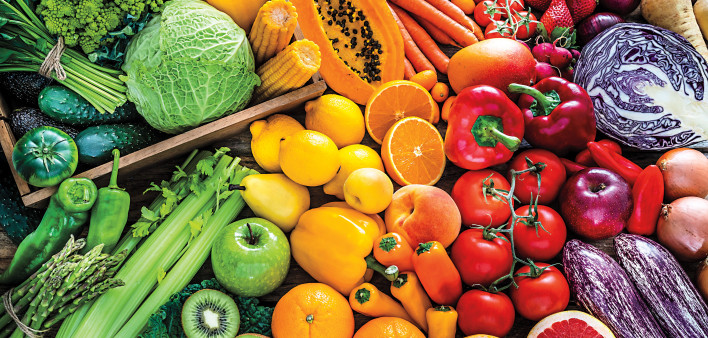A healthy diet is especially important for people living with HIV, as the virus can increase nutritional needs, and poor nutrition can worsen disease progression. A well-balanced diet helps maintain energy and strength, encourages a healthy weight, promotes good immune function and improves quality of life.
HIV-positive people on antiretroviral treatment can generally follow the same nutrition guidelines as the population at large. But people with HIV are more likely to have coexisting health problems, and dietary modifications can help reduce the risk of cardiovascular disease, diabetes, fatty liver disease and cancer.
In December, the federal government released its latest Dietary Guidelines for Americans, which are updated every five years based on the latest scientific evidence. The new guidelines recommend focusing on healthy foods, but they don’t restrict added sugars or alcohol as much as some experts had hoped.
A decade ago, the government scrapped the old food pyramid that recommended numbers of servings per day from each food group, replacing it with a more flexible approach. The latest revision is the first to provide guidance by life stage, from birth through old age. Instead of struggling to follow complex dietary rules, most people find it easier to look at the big picture and try to choose healthful foods most of the time while cutting back on added sugar, salt and unhealthy fats.
Variety Is the Spice of Life
Experts recommend getting most of your nutrients from a balanced diet that includes a wide variety of foods. This should provide an ample supply of vitamins, minerals, amino acids, essential fatty acids and antioxidants. Nutrient-rich foods and drinks should make up about 85% of your daily calories, with little leeway for empty calories.
The guidelines advise eating fruits and vegetables, whole grains, plant-based proteins (for example, beans and nuts), low-fat dairy products, fish and unprocessed lean meat and poultry.
When shopping for bread, pasta or rice, choose brown whole-grain varieties instead of white. From the produce section, select fruits and vegetables with a variety of colors: Green, yellow, orange, red and purple ones contain different nutrients. Plus, some spices (such as turmeric, black pepper and ginger) have anti-inflammatory properties.
Limit foods and drinks high in added sugars, sodium and saturated fat. Sweetened beverages are a major source of added sugars. The latest guidelines say these sugars should make up no more than 10% of your daily calories, but many experts think the limit should be 6%.
Water and other fluids are an important part of your diet. Coffee and tea contain healthful bioflavonoids, but cut back on caffeine if it interferes with your sleep. The new guidelines say alcohol consumption should be limited to two drinks per day for men and one drink for women, but some experts think men should stop at one too.
Gulping down handfuls of pills won’t make up for a poor diet, but some people can benefit from supplements. People who eat a vegan diet, for example, may need extra vitamin B-12. But more is not necessarily better, and too much can be harmful.
The guidelines suggest developing a customized healthy eating plan by starting with personal preferences, incorporating cultural traditions and considering budget constraints.
Talk to your doctor if you are having trouble eating, are unintentionally losing or gaining more weight than desired or if you feel like you’re not getting necessary nutrients. A registered dietitian can help you develop a personalized eating plan that meets your individual needs.







Comments
Comments